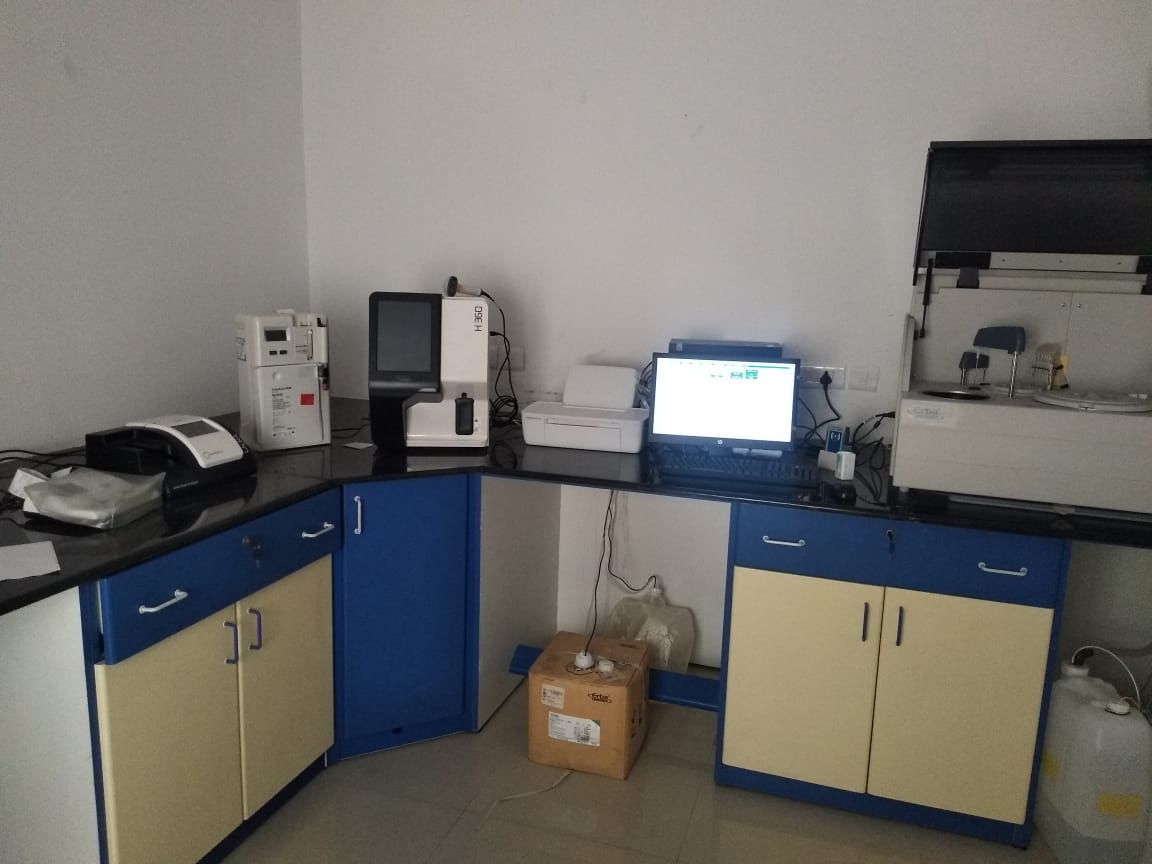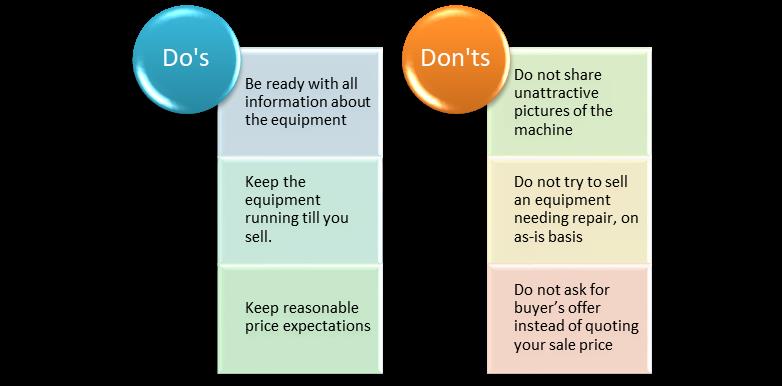
If you are looking to sell your used lab equipment, there is good news and bad news! The good news is – Laboratory equipment is quite expensive, hence there are plenty of potential buyers for second hand lab equipment. The bad news is – getting a good price may prove to be a challenge. No matter what the reason to sell is, here are a few important things to keep in mind when trying to sell used lab equipment.
Do’s and Don’ts of selling used lab equipment

| Do’s | Don’ts |
| 1. Be ready with all information about the equipment 2. Have the equipment running till you sell. 3. Keep reasonable price expectations |
1. Do not share unattractive pictures of the machine 2. Do not try to sell an equipment needing repair, on as-is basis 3. Do not ask for buyer’s offer instead of quoting your sale price |
DO’s – Tips for successful sale
Do’s 1.0- Be ready with all information about the equipment
A potential buyer will want to know about the system, its accessories, usage and condition of important parts like filter, tube and lamps etc. Whether the equipment has been under regular maintenance during the time you’ve owned is important too.
The first stage is where a potential buyer is screening to check if the item matches their requirement at all. The information a buyer is likely to want to know about the machine is:
- Make and Model
- System date of manufacture / Date of installation
- Nice pictures and videos of the machine
- Any major repair done or parts replaced
- Kits & Reagents available on sale
- If covered under valid Warranty/ AMC/ CMC
All this helps the buyer estimate the price offer.
Closed vs Open systems
Second hand lab equipment buyers are generally cost conscious and prefer open systems, so that they have flexibility with reagents purchase. However, if they already have a certain model and would like another equipment of the same model as back-up or to augment capacity, they will have no problems with reagents supply or maintenance of the equipment. More than 70% of revenue in IVD industry comes from reagents, kits and consumable sales. Only about 30% revenue comes from actual equipment sale. Most lab equipment in India is purchased on reagent rental basis. In other words reagents cost is an important consideration. As a seller, when you sell used lab equipment, one needs to understand where the buyer is coming from.
Do’s 2.0- Have the equipment running till the sale is concluded
If the equipment have not been in use for even a few months also, condition of the internal components deteriorate badly. It is common to see rusted centrifuges – share pics of rusted centrifuges. Often the tubings in the cell counter or biochemistry analysers harden due to salt deposits. Regular cleaning and maintenance of these equipment are a must, which may not happen when not in use. Changing the tubings is a somewhat costly affair. A potential buyer will want to check the condition of filters and lamps to ensure proper readings are still coming.
On account of the above reasons, no buyer will buy used lab equipment without thorough inspection. For a proper inspection reagents and consumables are required, hence the seller needs to ensure these are not expired.
If the equipment are not well-maintained, in good working condition and reagents are not available for testing – potential buyers will be driven away.
Do’s 3.0- Keep reasonable price expectations
Keeping reagents and equipment in good working condition, when they are not really being used for generating revenue may not be feasible for a long time. Therefore take quick decisions when you wish to sell used lab equipment. Lab equipment depreciate very fast. No matter how less utilised it is for you, most often the price the buyers are willing to pay for a second hand lab equipment is in the range of 35-40% of a new one. A new equipment cost includes warranty, transportation, packaging, installation services and a preliminary set of reagents & consumables – amounting very often to nearly 30-35% of the equipment price. A second hand equipment buyer has to bear all these costs apart from the depreciation of the machine.
DON’Ts – Avoid these mistakes when trying to sell used lab equipment
1. Don’t 1.0 – Sharing unattractive pictures of the machine
We sometimes get pictures of rusted or dirty equipment kept in a store-house among other condemned items for disposal. Such pictures will not attract any good buyers. Take pictures of the machine in a very clean condition under good lighting.
2. Don’t 2.0 – Trying to sell an equipment needing repair, on as-is basis
If the machine requires even a minor repair, it is better to get it repaired before putting up for sale. If the equipment is not in perfect working condition at the time of technical inspection, it is likely to raise doubts about what other problems it may have. So explaining that the problem is only minor is not going to help get a good price when you sell used lab equipment.
3. Don’t 3.0 – Not knowing how much to quote
Sellers are expected to quote their selling price. We often come across a situation where the seller instead of quoting their price asks for the buyer’s offer! This is a non-starter. Most often users have no idea what to quote. If you are not sure what is the fair market price for your equipment we can help there.
Primedeq can assist with medical equipment valuation services as well as finding potential buyers. You may also like to checkout our free valuation tool.
—————————————————————————————————————————
PrimedeQ is an e-Marketplace for buying, selling, renting, servicing and spares of medical equipment. We offer all types of used / refurbished medical equipment , including cathlab, ECG machine and other diagnostic equipment, endoscopes, OT equipment, Laparoscopic Equipment, Lab equipment, X-Ray, TMT, anesthesia machine, ultrasound machines etc. We offer repair services for all types of medical equipment including Lab equipment, microdebrider, laparoscope , rigid and flexible endoscopes as well as EUS (Endoscopic Ultrasound Units) and ultrasound probe etc.
Contact us for any medical equipment requirements 7019759765.






